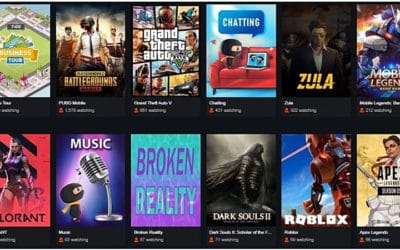Check out our curated Weekly Roundup of the breaking news and must-read thought leadership pieces on the crowd economy spotted by the Crowdsourcing Week team
JOBS is bringing equity crowdfunding to non-rich people
The ‘Jumpstart Our Business Startups Act’ is aiming to make it easier for new US companies to make money. Here is what you should know
Title III of the JOBS Act goes into effect, bringing equity crowdfunding to the 99%. Projects, and some companies, already raise money from anyone on crowdfunding platforms like Kickstarter and Indiegogo, but aside from a reward here and there (nice T-shirt, bro), “investors” on these platforms don’t get or expect anything in return. A bunch of other websites like CircleUp, Crowdfunder, and WeFunder, which call themselves “equity crowdfunding platforms” allow investors to fund companies in exchange for real securities. These platforms could previously only work with “accredited investors” (those rich people we mentioned earlier). Under the new rules, they can technically open fundraising to anyone.
How crowdsourcing helped bring ISIS-destroyed museum back to life
Read the story of Rekrei, an organization that uses a process called “photogrammetry” to produce digital 3D models of cultural artifacts from crowd-sourced photographs
Rekrei was initially intended as a response to the ISIS-led demolition of the Mosul Museum. “I made the comment to Matthew: Why don’t we try to crowdsource the images and the data from people who had visited the museum previously, use those images to reconstruct the artifacts, and then place them back into a virtual museum at some later date?” Coughenour explains. It took just two weeks for the pair to get Rekrei online. Although there had been previous efforts to digitally reconstruct single objects—such as the Bamiyan Buddhas, blown up by the Taliban in 2001—Coughenour says Rekrei is the first photogrammetry initiative of this scope.
AI and Crowdsourcing in remaking the legal profession
The power of technology is enabling new companies to harness networks of computers and people to sift through legal information and help lawyers prep cases. Read more here
The innovation upsurge may in part be generational. “If you make partner today in a law firm, and if you were in college with Google, you have different expectations of technology,” says Josh Becker, CEO of Lex Machina. The company tracks the activities of lawyers and judges using an artificial intelligence technique called natural language processing (NLP) to analyze court documents and figure out things like how a particular judge tends to rule on particular types of cases. It can also ferret out types of cases, such as patent or trademark, the specific IP a claim asserts, and all the attorneys involved.
“Cancer moonshot” will start crowdsourcing patients’ stories
This story shares details of how Vice President Biden’s “Cancer moonshot” will start using crowdsourced patients’ stories in order to find a cure for cancer
Seven working groups were established this week for the moonshot, according to an essay on Medium by National Cancer Institute acting director Douglas Lowy. Each group has more than a dozen subject matter experts and patient advocates. Starting this week and through the middle of summer, the working groups will discuss opportunities for cancer clinical trials, data sharing, pediatric cancer, immunology and prevention, precision prevention and early detection, implementation sciences, and tumor evolution and progression, Lowy wrote. Now, Biden says he wants people with cancer stories of their own to join cancer researchers, oncologists and others to share data and their expertise on Medium.
Panama Paper, one of the biggest crowdsourcing efforts
Crowdsourcing may be the reason of Panama Papers leak. Check this article to find out more
Sorting through all the information in the massive Panama Papers leak could end up “being one of the biggest crowdsourcing efforts ever,” Jake Bernstein of the International Consortium of Investigative Journalists said during a Reddit AMA session Wednesday. Bernstein, along with the ICIJ’s Ryan Chittum and Mike Hudson, answered questions about long-term effects of the leaked documents, how the ICIJ analyzed the info and which high-profile business and government leaders might be tied to fraud. On Monday, the ICIJ opened up a massive, searchable database tied to the documents that contains information on almost 320,000 offshore entities. The ICIJ journalists said people could help by searching for notable people and connections in the database.
Humans and Machines for better crowdsourcing
A team of researchers at Carnegie Mellon University and Bosch explain how computers with small contributions of individuals can lead to better crowdsourcing
“In many cases, it’s too much to expect any one person to maintain the big picture in his head,” said co-author Aniket Kittur, associate professor in the university’s Human-Computer Interaction Institute, in a press release. “And computers have trouble evaluating or making sense of unstructured data on the Internet that people readily understand. But the crowd and the machine can work together and learn something.”
Image: fastcompany
There are many fantastic stories out there. What else caught your eye this week? Did you come across some breaking news or a good thought piece? Do share them with us…





0 Comments